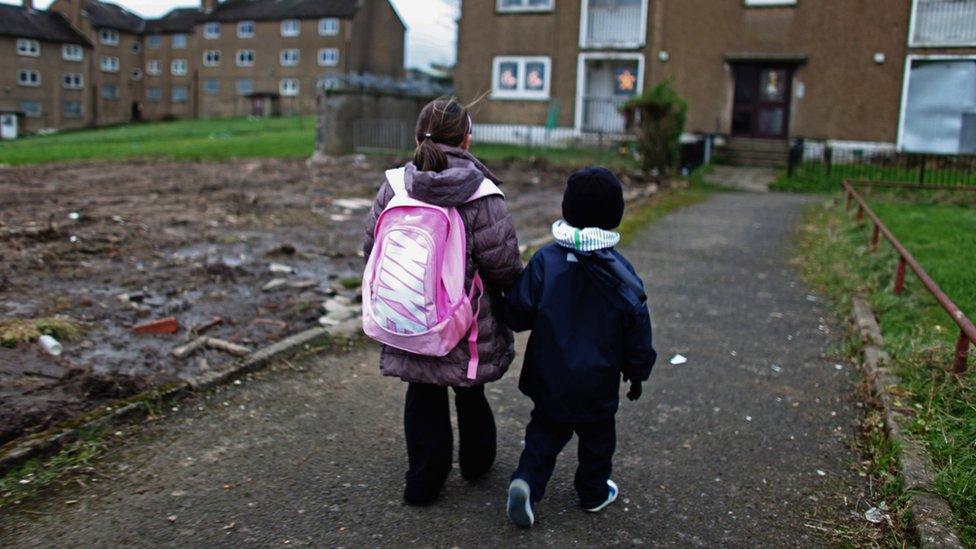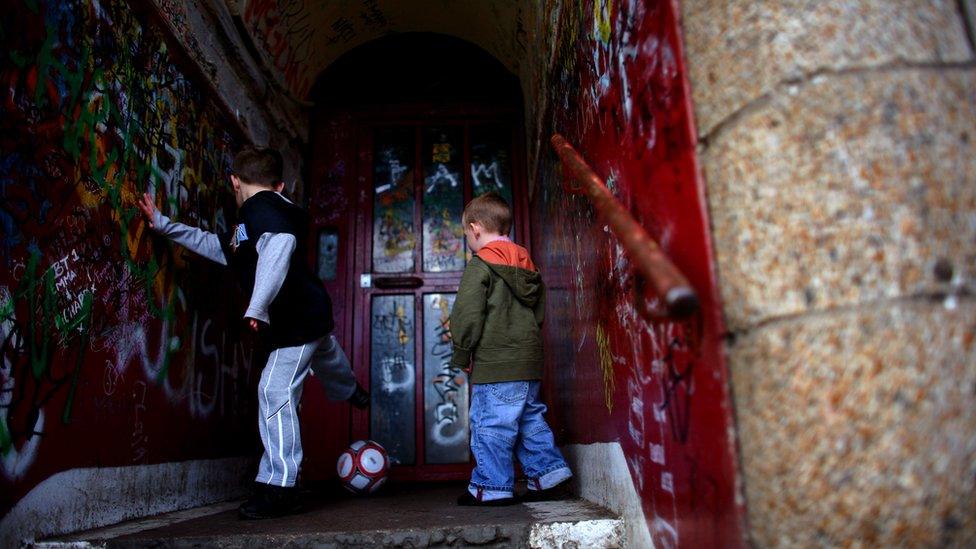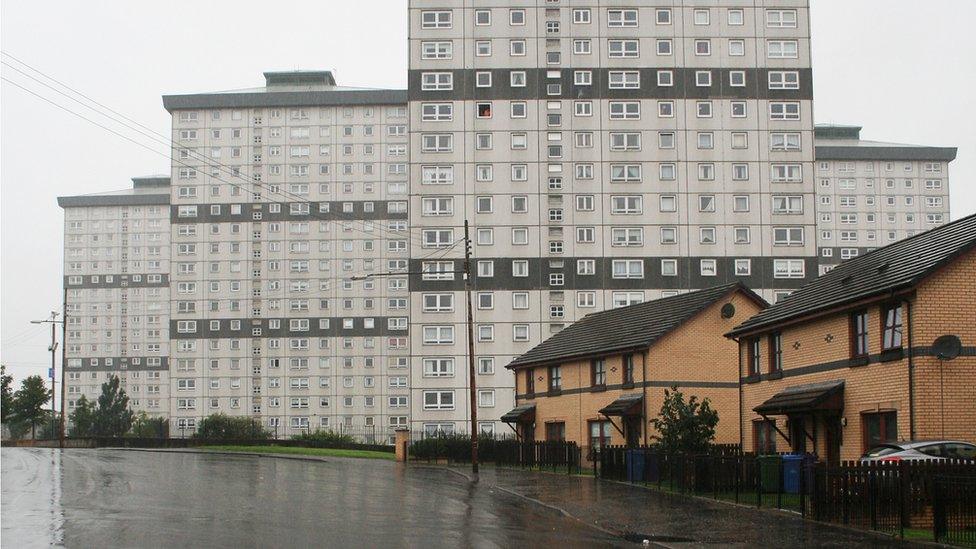Hunger and isolation: Cost of school holidays for low income families
- Published

Hunger, food insecurity, isolation, boredom and stress are the reality of the summer break for many children in Scotland, a new study has claimed.
Far from the happy and carefree time it should be, the study found the summer break for children from low income families is weeks of additional stress.
Researchers found the effects of poverty increased during this time.
The study said poor childcare, limited access to activities and food worries all had an impact on children's health.
The paper, titled The Cost of School Holidays for Children from Low Income Families, external, was published in the journal Childhood by researchers at the University of Glasgow.
Prof Nicolas Watson, from the Institute of Health of Wellbeing at the university, said: "The long summer holidays can offer children the chance to have new experiences, opportunities to play, relax, create memories and develop essential social skills.
"While this is true for many children, for some the school holidays are a stressful and impoverished period of isolation, boredom and inactivity."
'Immediate help'
Prof Watson added: "For low income families, summer holidays often entail increased financial pressures, food insecurity, poor health and exclusion from culturally enriching and healthful activities."
The lack of educational and developmental opportunities enjoyed by more affluent children means that the long summer break may be one of the most fundamental contributors toward the attainment gap between richest and poorest children, accounting for almost two-thirds of the gap by the time children reach the age of 14.
The professor is calling for a system of social protection to be put in place to negate the impact of poverty during the summer holidays - this could be in the form of centres where children can take part in enriching activities in a safe environment with good quality childcare, and where they are also fed.

The study described holidays as a stressful and impoverished period of isolation, boredom and inactivity
"These children need help immediately," said Prof Watson. "First and foremost, steps must be taken to address the national problem of food insecurity to ensure that children do not go hungry or become malnourished during the school holidays.
"Second, providing accessible, good quality childcare that meets the diverse needs of families is vital if children's learning and wellbeing is to be supported, while enabling parents to pursue better paid and more secure employment.
"Third, although there is a substantial amount of evidence to support the claim that summer learning loss is a problem - and a particular concern for low-income families - there is a lack of research on the long term impact upon attainment and life outcomes, a gap that must be addressed through rigorous academic scrutiny."
Prof Watson said: "Unless we take steps to tackle this problem, the evidence would suggest that attempts to rectify the attainment gaps in education, health and wellbeing that exist between the wealthiest and poorest school children will be unlikely to succeed."
Child Poverty Action Group reported the number of children living in poverty in the UK is now four million and that in-work poverty is the most prevalent form of child poverty with 67% of poor children living in low income households.
'Holiday pressure'
Nursery places cost 77% more than they did in 2003 while earnings have remained largely unchanged.
John Dickie, director of the Child Poverty Action Group, said: "There is no question the summer holidays place a lot of pressure on low income families who struggle to meet the extra costs of activities, lunches the children would normally be provided with in school and childcare.
"We hear parents talk of their guilt and sadness that they cannot provide the carefree summer holidays they would like to for their children. Some give up work or reduce hours to look after their children in the long holidays.
"The ultimate solution is to boost family income to make sure they can afford the extra costs."
Communities Secretary Angela Constance said the Scottish government was committed to tackling child poverty with a range of actions implemented through its child poverty delivery plan.
She said: "This includes measures to help families maximise incomes, a £12m fund to support parents into work and develop their skills, and a £7.5m innovation fund to support new approaches to preventing and reducing child poverty; and an additional £1m to support children experiencing food insecurity during the school holidays.
"In addition, our investment of £750m during the course of this Parliament is targeted to tackle the poverty-related attainment gap and ensure every child in Scotland has an equal chance to succeed. This includes another £120m of Pupil Equity Funding direct to schools this year, used by many to provide a range of opportunities for families to learn and play together over the school holidays.
"These are all steps to our ultimate goal of eradicating child poverty completely by 2030."
- Published26 March 2018

- Published30 May 2018

- Published15 March 2018
